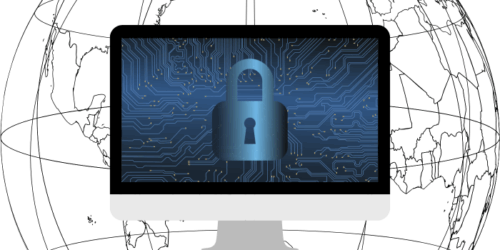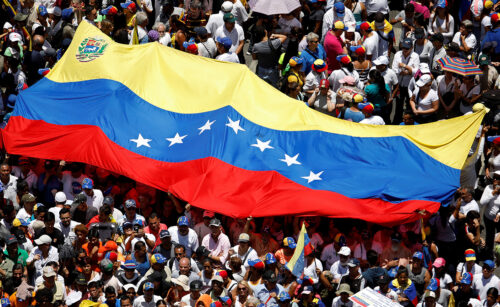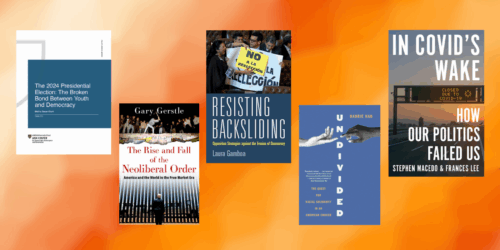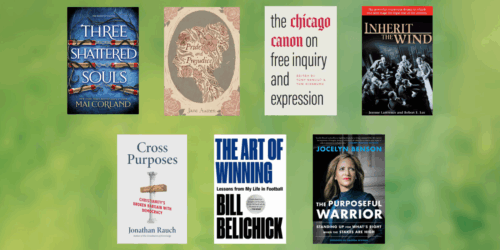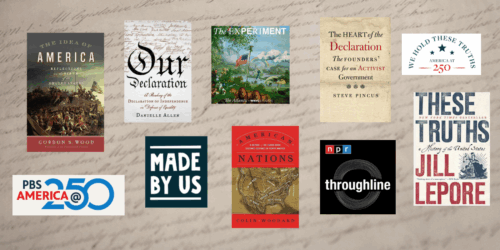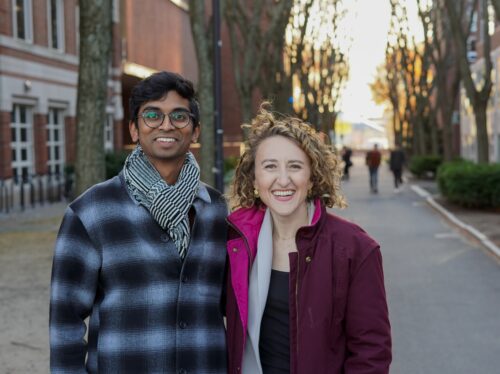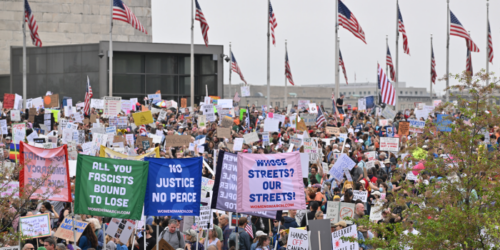In July, after 25 years under the increasingly authoritarian regimes of Hugo Chavez and Nicolas Maduro, polls indicated that Venezuelans had finally reached their limit and were ready to cast aside the country’s socialist government. Twelve million Venezuelans voted in the now-disputed July 28 election. Maduro claimed victory, but many observers believe the opposition won by as much as a 2-to-1 margin. Since then, thousands of opponents of the regime have been rounded up in large numbers, including journalists, political leaders, and opposition campaign staffers.
The Ash Center sat down with Freddy Guevara — MC/MPA 2024, a Venezuelan opposition leader who has lived in exile since 2021, and a research fellow at the Nonviolent Action Lab — to discuss Venezuela’s election, the protests, and the country’s future.
Ash: Even though Maduro still managed to tilt the electoral playing field in his favor, how did he lose the support of most of the country’s voters?
Maduro’s loss of support can be attributed to two major factors. First, the disastrous economic situation and humanitarian crisis created by the failed policies and corruption of Hugo Chávez, compounded by Maduro’s own corruption and mismanagement. They simply couldn’t provide for even the basic needs of the population, leading to widespread poverty and inequality, and more than 8 million people fleeing the country.
Second, there’s the suppression of democratic freedoms and human rights. His efforts to suppress independent voices, curtail civil liberties, and stifle political opposition have been well-documented and affected a society that has been very attached to its democratic values. These violations have been officially addressed and denounced by the United Nations, the International Criminal Court, and numerous international NGOs. The combination of these factors made it impossible for Maduro to maintain broad popular support.
Irregularities in the vote-counting process have been widely reported. The anti-Maduro opposition claims 73% of the vote tallies show Maduro’s opponent Edmundo Gonzalez as the clear winner. How was Maduro seemingly able to rig the vote tally?
Actually, Maduro couldn’t rig the vote tallies; instead, he simply declared victory without providing any proof. The opposition, along with international observers, has access to the official tallies, which show that Gonzalez won by a significant margin. The opposition holds 83% of the vote tallies, and the gap between Gonzalez and Maduro is so large that even if Maduro had 100% of the remaining votes in the rest of the tallies, it would still be mathematically impossible for him to win.
As far as we know, their original strategy was to prevent us from accessing the tallies through military intervention, so they could change the results without any proof. However, their plan failed for several reasons: many people fought bravely to protect the tallies; not every military officer followed the order to block us; and the spread was so big that even without having access to almost 20% of the tallies, they couldn’t make it work in their favor.
So they just fabricated a result and announced it without showing any evidence, in contrast with the opposition claims and the international observers, which has led to widespread national and international condemnation and a lack of recognition for Maduro’s claim to victory.
There was hope that this election would be a turning point for Venezuela’s democracy. Are you hopeful that Venezuelan voters will ultimately have their voices heard?
Yes, I am optimistic. This time we have undeniable proof of the regime’s electoral fraud, and this has been recognized by the international community and by many former allies of Maduro. The widespread international condemnation, combined with the persistent and courageous resistance of the Venezuelan people, and the divisions within the regime, creates a powerful force that will eventually lead to change.
Of course, as with everything in life and especially in politics, nothing is certain, and we still face many challenges. We cannot ignore the role that geopolitical powers like China, Russia, and Iran may play in our struggle, nor the human cost in terms of repression. However, I remain optimistic and believe that sooner rather than later, we will see a democratic transition in Venezuela. I truly believe that this is the beginning of the end for the Maduro regime.
We have already seen protests break out in the capital, Caracas. So far, they’ve largely been nonviolent. Is there a chance that either protestors or the Maduro regime could take up arms?
I would first like to emphasize that the protests have not only been in Caracas but across all regions of the country, particularly in poorer neighborhoods and former strongholds of Chavismo [Ed: the political ideology formed by former president Hugo Chavez]. So, it’s a national phenomenon.
Regarding the use of arms, the Maduro regime has already taken up arms against peaceful civilians in two significant ways. First, by using police and military forces to violently repress protestors, resulting in numerous casualties. Second, by deploying armed paramilitary groups to attack unarmed civilians.
While the opposition remains committed to nonviolent resistance, the regime’s use of violence raises the risk of further bloodshed. However, a civil war seems unlikely, as the opposition is largely unarmed and has the overwhelming support of the population. The greater concern is the potential for continued state-sponsored violence against protestors, which is why international pressure and sanctions are crucial in holding the regime accountable and preventing a massacre.
The promise of democratic elections had helped lift some sanctions, which led to a slight upswing in the deeply depressed Venezuelan economy. How do you see the drama playing out over election results impacting the trajectory of an economic recovery?
There is no evidence that international sanctions caused the Venezuelan economic crisis or worsened it. In fact, some argue that sanctions forced the regime to open the economy to international currency transactions, providing some relief to the population. Easing sanctions without securing democratic improvements only strengthens the regime, as it allows them to access more resources to entrench their power.
The economic sanctions in place primarily target the regime’s sources of income, such as the oil sector, and do not affect humanitarian aid or essential services. Lifting sanctions without real democratic change benefits the corrupt regime and oil companies, rather than the Venezuelan people, and could potentially undermine the long-term prospects for genuine economic recovery.
Regarding the future economic situation, I believe that if Maduro prevails, it will get much worse because there will be increased instability, more international isolation, fewer people or companies willing to invest, and probably more people wanting to leave the country, increasing the migrant crisis that has also affected the United States.
So, it is in everyone’s interest, for the sake of human rights and democratic principles, but also for the sake of stability and preventing a deeper migration crisis, to help Venezuelans achieve a democratic transition.
